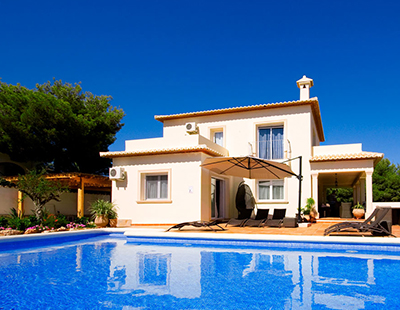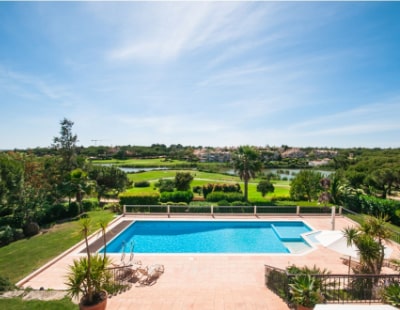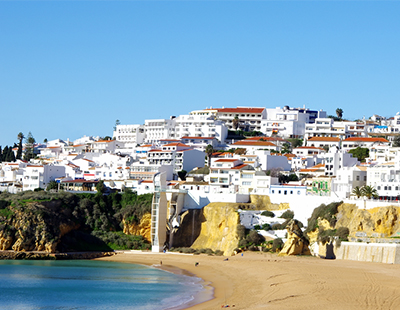“It must be recognised that not all the terms of the UK’s new agreement with the EU (and specifically with Spain) have been negotiated, never mind agreed,” he said.
Holidays and second-home owners
Holidays to Spain with stays of less than 90 days within any 180-day period will remain unaffected by the UK leaving the EU, Woolley points out.
“This therefore accounts for the vast majority of holidays, and also a majority of holiday-home owners in Spain who use their property in the sun as a second home. There are actually very few who use their property abroad for longer than three-month periods.”
The complications start arising, he admits, once visitors to Spain want to stay for extended periods of over 90 days in every 180-day period.
“In these early days of the post-Brexit arrangements, apart from Covid regulation, there is no evidence of counting-in, passport stamping or registration of overseas visitors to Spain. It is expected that there will be discussions between the UK and Spanish authorities in the future about this issue, but right now and understandably, it’s not a priority for either government,” Woolley says.
“Interestingly, citizens of Switzerland and Norway, two countries that are NOT members of the EU, are free to come to Spain whenever they choose. Effectively, these citizens enjoy free movement.”
Is this also likely for UK citizens? “We just don´t know, but it would seem to be in the interests of both Spain and the UK to come to a similar arrangement in the not-too-distant future. The vast majority of both nation’s emigrants contribute financially to the other’s economy. We are not talking about a wave of refugees moving between London and Madrid here, with all the associated political and socio-economic debates.”
Permanent residency
At midnight on December 31 2020, UK citizens lost their rights to automatic residency of EU countries when the Brexit transition period came to a jarring halt. Unless someone was already in the application system or can now retrospectively prove their ‘residence’ in Spain prior to that date, then they would appear to be stuck.
Or are they? Wooley poses. “Last week, I had a long discussion with leading Spanish lawyer, Miguel Manzanares, who confirmed that UK citizens are still able to secure Spanish residency allowing them full-time access to Spain as long as they can provide evidence that they can support themselves and their families, such as providing bank deposit details, health insurance, title deeds to a property they own or even a long-term rental home.”
He adds: “This would typically suit retirees who just want to move to Spain to enjoy a better lifestyle, but who have no intention of relying on the Spanish state system. However, this type of residency requires a commitment to stay in Spain for longer than 183 days per year. If not, then the current non-negotiated and visa-free arrangement of 90 day stays within any 180-day period would probably be more suitable.”
Meanwhile, for those who want to come to Spain and set up a business, people are still perfectly entitled to do so, but ‘similar conditions apply’ in that they will need to prove their financial means and independence, as well as presenting a feasible business plan so that the authorities are assured of the legitimacy of their application.
Golden Visa
Another route to Spanish residency for UK citizens could be sought through the Golden Visa system, Woolley advises.
“This is an inappropriately named scheme which actually provides ‘residency’ rather than a 'visa', and provides some interesting advantages for many people,” he says.
“This scheme was introduced in 2013 as an incentive for non-EU investors who could apply for the Golden Visa by investing a minimum cash amount of €500,000 in shares, government bonds or (completed) property in Spain.”
While the scheme precludes those with less than a €500,000 investment, Woolley says it provides several important benefits, especially for those who normally reside in lower-tax jurisdictions.
“Firstly, it entitles the investor (plus his/her spouse and financially dependent children) to residency of Spain and to travel freely to any country that is part of the Schengen convention,” Woolley explains.
“Secondly, the investor only needs to spend one day per year in Spain to maintain their residency in Spain. If you choose to only come to Spain for less than 183 days, you do not need to become a ´fiscal´ resident of Spain, meaning that you can continue to run your financial and tax affairs through your home country, which may be a very lucrative benefit for many non-EU investors.”
Thirdly, Woolley continues, the Golden Visa application can be retrospectively applied. If an individual can prove that they invested at least €500,000 after September 2013 when the scheme was introduced, then they can make an application for the Golden Visa.
“The application process is very simple and approval is normally given within 14 days,” Woolley says. “You are free to buy and sell properties or qualifying shares/bonds during that time, but at the time of application and any subsequent renewal, you need to prove that you still have a minimum invested amount of €500,000 in these assets.”
The Golden Visa must be renewed after the first 12 months, and then after a further two years.
Options remain open
There are still ways for UK citizens to obtain residency in Spain, but the doors appear to be closing on those applicants who are unable to prove their financial independence or are unable to invest a minimum of €500,000.
“Those especially affected are individuals who just fancy a change of lifestyle by moving to Spain from the UK, but who need to rely on a regular wage in their adopted country. The matter of ‘working visas’ has not yet been addressed or negotiated,” Woolley states.
“I expect one of two things to happen to help those in this situation. Either UK citizens will be free to come and go as they please like their Swiss and Norwegian peers, or there will be a visa system implemented to allow UK citizens to be employed here in Spain, but perhaps initially for a limited time.”
Woolley, the founder and director of real estate agency Cloud Nine Spain, who has become known as ‘The Property Doctor’ in his adopted country, adds: “I further expect 2021 to be a year of flux while the world tries to combat other challenges that face us, but there needs to be some guidelines in place in the near future to allow everyone to plan for their future.”
What about France?
Those still keen on retiring to France, but who want to know what has changed since Brexit, have also been frantically trying to understand their best options.
The team at Leggett Prestige has been fielding many calls from UK buyers who are still eager for a retirement in France. But what changes will UK residents see? The company, which specialises in historic family châteaux, country estates and elegant villas on the Côte d’Azur, as well as quality vineyards and equestrian estates of all sizes, has taken a look at residency, healthcare, taxation and the state of the property market from a French perspective.
As a third country national, the process for Brits is now a little more long-winded, but Leggett says a move to France still remains ‘highly attractive’ both fiscally and in general quality of life.
Below, it lays out what UK buyers need to know.
Visa requirements
You will need to apply for a visa before your move. There are many different types, available from your nearest French Embassy in the UK, but you will probably apply for a visa de long séjour valant titre de séjour visiteur, which is for people looking to spend longer than six months in France. There is an excellent visa wizard at www.france-visas.gouv.fr, which should be your starting point. Once you have this and have moved across, you will apply for a five-year carte de séjour, after which you can apply for a carte de séjour permanent. You will apply for these from your local prefecture.
Healthcare
All residents need healthcare and you will need to join the French system and get a Carte Vitale. If you are working (employed or self-employed), this will happen automatically and you will pay via your cotisations.
If you are a pensioner, then you will apply for your Carte Vitale as an S1 holder. If you are an early retiree, or economically inactive, you apply through the Protection Universalle Maladie (PUMa) scheme. Meanwhile, you can use your European Health Insurance Card (EHIC) whilst waiting to join the system. If this expires, then you can apply for the new Global Health Insurance Card (GHIC).
Minimum income
If you are not planning to work in France, you will need to prove that you have sufficient means to support yourself and not become a burden on the state. The guideline figures are based around the French minimum wage (known as the SMIC) and savings/UK rental income will be taken into account. The figures vary dependent upon situation and size of household but are widely available online.
Taxation
There are no additional taxes if you are looking to purchase property in France, but you should allow around 7% to cover the taxes, searches and Notaires costs (lower if you are buying a new-build).
The standard Capital Gains Tax (CGT) remains at 19% and, of course, is only payable on a second home. However, the social levy charge for EU residents with a second home in France is 7.5% - be warned that this has risen to 17.2% for British homeowners as they are no longer EU residents.
A taper relief applies on both CGT and the social levy, both kicking in after five years of ownership. CGT reduces to zero after 22 years whilst the social levy reduces to zero after 30 years.
Wealth Tax applies only on real estate assets (the law was changed in 2017, before which it was levied on all assets). This applies to people holding net taxable real estate assets in excess of 1.3 million euros.
The next election is due in May 2022.
The current market across France
The latest report from the Notaires de France states that ‘there had been a strong rebound in terms of post-confinement signings’, but that sales volumes stagnated at the end of 2020. Regardless they expect to see 900,000 transactions, which is a remarkably robust figure given the impact of Covid-19 on movement within the country.
They go on to say: ‘the price curve has been unaffected by the change in volume…Covid-19 has not lasted long enough to significantly alter attitudes or prices’.
The Leggett Prestige team can confirm that both domestic and international demand remains extremely high, indeed the company posted record sales figures in 2020 and went into 2021 with a sales pipeline 40% higher than 12 months previously.
There is a definite shift towards spacious country property, with good broadband and room for a home office.
Leggett advises that the information above does not constitute financial advice and people should seek specialist advice from an accountant or lawyer where applicable.









.png)

.jpg)








Join the conversation
Be the first to comment (please use the comment box below)
Please login to comment